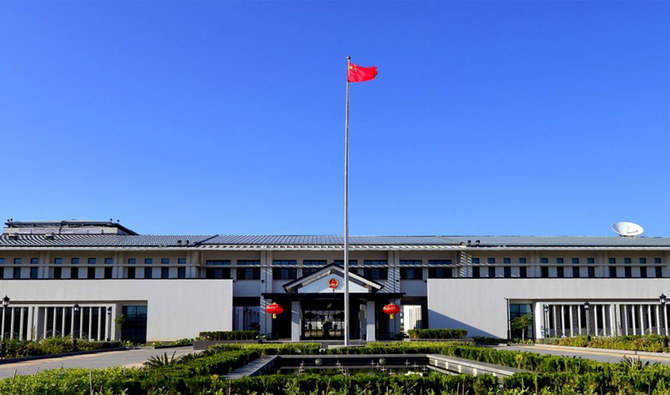ISLAMABAD: China has temporarily closed down the consular section of its embassy in Pakistan due to “technical issues,” the embassy said on its website.
The notice did not provide specific information about the nature of the “technical issues,” or a timeline for the closure.
“Due to technical issues, the Consular Section of the Chinese Embassy in Islamabad will be temporarily closed from February 13, 2023 until further notice,” a notice on the website said.
The notice follows another one last week in which the Chinese government advised its citizens to be cautious while in Pakistan, saying they might be at risk due to a deteriorating security situation.
Pakistan has seen a rise in terror attacks since late last year when the Pakistani Taliban group called off a fragile truce with the government.
Militant groups in Pakistan have frequently attacked Chinese nationals, aiming to threatened a major segment of Beijing’s Belt and Road infrastructure initiative, a $65 billion network of roads, railways, pipelines and ports in Pakistan that will connect China to the Arabian Sea and help Islamabad expand and modernize its economy.
Last April, a female suicide bomber killed three Chinese teachers in Karachi along with their local driver, targeting nationals from Pakistan’s most important partner and seeking to undermine a relationship on which Islamabad’s financial survival largely depends.
















